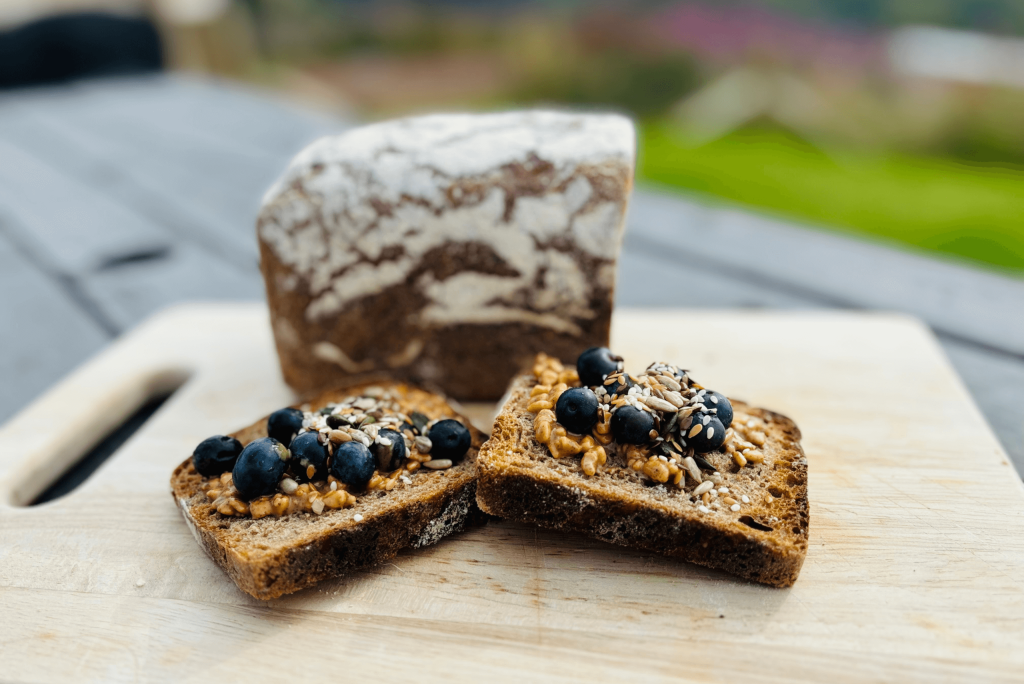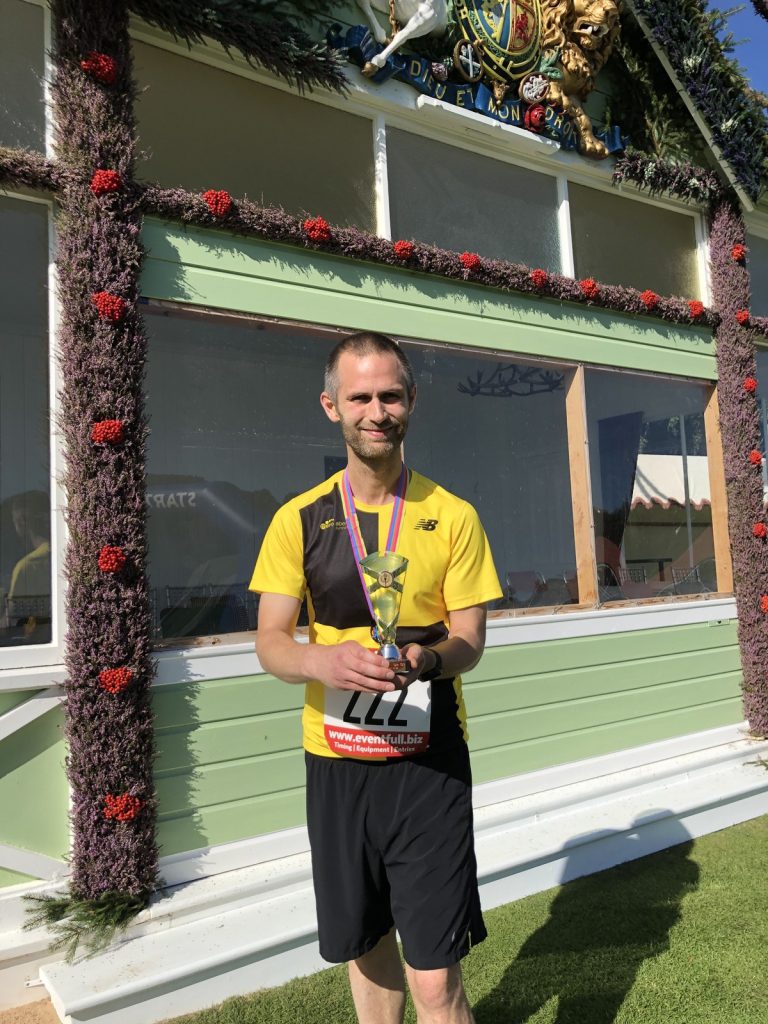
How To Fuel Your Way To A PB
There is no straightforward answer on how to fuel your way to a PB in your next big race, whether it is running swimming, cycling or any other sport, everyone’s body reacts differently. If you eat well, eat wise and eat nutritious food you will be on the right road. As a keen runner who has taken part in multiple 5k, 10k, ½ marathon and marathon events I have learnt by experience, especially with marathon running. It’s important to start thinking about fuelling from the beginning of training for your event. Make sure you plan out what you eat during the week including all the essential ingredients to keep yourself going through a hard week of training. As your training builds up those carbohydrates and proteins are so important for preparing yourself for those long training sessions and for recovery.
Carbohydrates are one of the three primary macronutrients (the other two are protein and fats). When you eat carbs, your digestive system breaks them down into glucose, a type of sugar that's the primary source of energy for the cells in our body.
There are 2 types of carbs simple carbs and complex carbs. While simple carbs are quicker to digest and easier to absorb than complex ones, they tend to spike your blood sugar levels faster and higher. Repeated spikes in your blood sugar over time can increase your risk for chronic illnesses, such as heart disease, kidney problems, diabetes and nerve damage.
Complex carbs are your body's ideal fuel source for physical performance. Complex carbs are found in several whole foods, including fruits, vegetables, whole grains, legumes, nuts and seeds. Because the foods that complex carbs are found in also contain fibre, your body digests complex carbs more slowly, reducing the rate at which they're released into your bloodstream. This prevents your blood sugar from spiking by providing a slow-release, sustainable energy source over a longer period of time, which is great for keeping sustained energy on a short or long training session.
Eating Protein Helps Prevent Injury
When you’re working out at a high intensity, such as a long run or cycle, injuries sometimes happen. By having a good amount of protein your diet could help you both bounce back faster and prevent sports injuries in the first place. According to a 2022 research review, consuming enough protein is also associated with maintaining lean muscle mass, which in turn supports strength, power, balance, and exercise tolerance, all of which can reduce the likelihood of injury.
Fueling Routine
For me fuelling in the morning is the most difficult you never know how your stomach will react in the morning and its always the factor of leaving enough time before going out for that run, swim or cycle. If I do eat, I keep it really light and have some sourdough toast, peanut butter and blueberries and maybe a banana. Most of the time if I run early I won’t eat anything as I know my body has enough glycogen reserves. This may not be the case for everyone and you may need to plan better if you are running early to make sure you get up in plenty of time to eat and let it digest. Many swear by a bowl of porridge before a long morning training session, if you do then I recommend adding some nut butter and a pinch of salt.
If you have run early, it’s important to get a good post run breakfast/brunch on your return which could be porridge or overnight oats with plenty of nuts, seeds and berries added which help with muscle recovery. Another option is poached or scrambled eggs or scrambled tofu with avocado on toast with seeds, again giving good muscle recovery with protein. Or if you are in a rush a smoothie is always a good option, if you put a good quality plant-based milk, I use Plenish, a mix of berries and a banana, pinch of salt, teaspoon of turmeric, some nut butter and seeds and even some kale this should give you a balanced post run refuel which includes great protein, carbohydrates and electrolytes.
For lunch again think about carbs and proteins. My go to lunch is a good veg and bean soup, or a curried chickpea and spinach sandwich or a protein packed salad with lots of green leaves, lentils, beans, mixed seeds and some kimchi and a few nuts.
For dinner I always make sure I have a good balanced plate, in my lead up to any big race especially a half marathon or marathon I always try to have a good bowl of pasta 2/3 times a week, I’ll also have quinoa as well which is a great protein as well as carbohydrate. I will always include some kind of protein, either salmon, mackerel (great omega 3), tofu, or pluses such as chickpeas, black beans or lentils. Always plenty of veg as well, great sources of calcium and polyphenols are broccoli, spinach, kale. I also try to add in beetroot where I can as this is a great sauce of nutrition for pre-race fuelling. Extra protein can also come from making delicious sauces using silken tofu or soaked cashew nuts and adding in extra flavour and nutrition such as mixed herbs, spinach, kale, citrus, nutritional yeast and spices in particularly turmeric, ginger, cardamom and garlic which are anti-inflammatory. I always make sure the week before a race I lower my fibre intake which means a few less trips to the toilet on race day.
I always make sure I have plenty of energy snacks in for pre and post-afternoon runs. So many of them that you buy in the shops have so many unnecessary ingredients like emulsifiers and seed oils. They are so easy to make, an energy ball which could be blitzed dates, nuts and seeds with ground cinnamon and ginger. Or a granola bar which is simply just oats, nuts, seeds, dried fruit such as goji berries, maple syrup, tahini and sea salt. A handful of nuts and seeds is always a good and easy protein snack as well.
The Importance of Hydration
Hydration is crucial, especially leading up to any race. Make sure you are drinking enough water throughout the day ideally at least 2.5 litres but this doesn’t just have to come from water it can come from fruit tea, fruit juice, milk or plant milk, it’s important to include some kind of electrolytes in this fluid intake, there are many premade drinks and powders on the market which a lot are full of unnecessary ingredients. It can be kept very simple; I do have a powder on hand which I occasionally use from a company called Gutology whose ingredients are all natural and keeps dehydration at bay when required. Most of the time I make my own electrolyte drink using simple ingredients which includes coconut water, Himalayan sea salt, orange juice, lime juice and lemon juice, It also works well with watermelon which is another great rehydration fruit.
One final thing is to always plan what you are going to eat on the morning of race day so you have no surprises during your race. It’s always a good idea to practice a few times before a long training session so you know what works and what doesn’t work. It’s also worth doing this with the meal you are likely to have before race day. This is my thoughts on how to fuel your way to your next race, I believe with the right balance of nutrition it should give you the right energy and recovery to get you through your training block and smash that next race goal!

Tim Yeomans, Founder of Nourished and Refuelled
@nourishedandrefuelled
Nutritious Food Caterer
Healthy food blogger
Nutritious gut healthy recipes